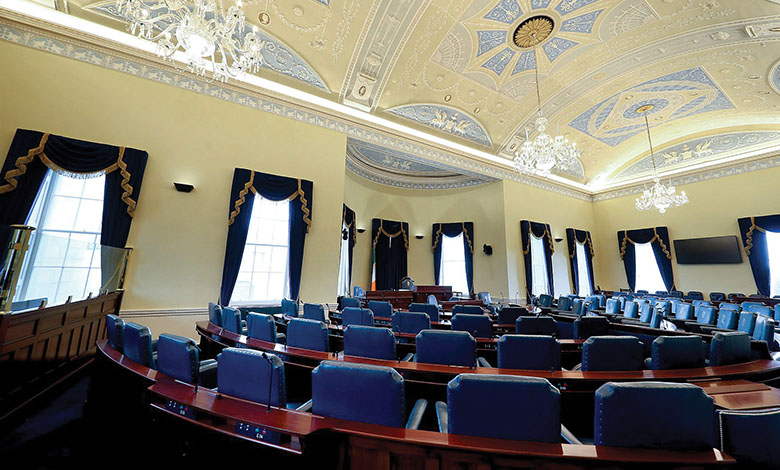Seanad: All graduates may soon be able to vote

Plans are being developed which could pave the way for the extension of voting rights in elections to Seanad Éireann to all graduates.
Minister for Housing, Local Government and Heritage, Darragh O’Brien TD presented his proposal to Cabinet in November 2023 in the aftermath of a case in the Supreme Court which found that Article 18.4.2 of the Constitution mandated the Oireachtas to enact legislation to include the electorates of all higher education institutions in the State.
Currently, only graduates of Trinity College Dublin and the National University of Ireland are granted the right to vote in Seanad elections. These institutions each hold a two-seat constituency. The measures presented to the Cabinet propose the creation of a single unified ‘university graduate’ constituency which elects six senators, with all graduates eligible to vote.
The role of the Seanad has been a contentious one in contemporary political discourse, with the Enda Kenny-led Fine Gael-Labour coalition attempting to abolish the upper house in 2013, only to lose in a referendum.
With the Free State Seanad having been based on the British House of Lords’ model of an upper chamber for the ‘intelligentsia’ with the necessary expertise to scrutinise legislation, the Seanad’s scope and remit has been changed fundamentally on two occasions both before and after the republicanisation of the State, in 1928 with a reduction in its accountability whilst enhancing its powers, and in 1937 with a significant curtailment its powers.
In spite of its power to delay a bill by 90 days (a power it has only exercised twice in its history), the Seanad has receded into a reclusive ground – free from enhanced media scrutiny – for eccentric political figures such as Senator Rónán Mullen and the recently retired former senator David Norris.
Another dubious feature of the Seanad is the provision for direct appointees by government parties, which are typically given to allies of party leadership who failed to get elected to the Dáil. Recent examples of this include Fianna Fáil Senator Lisa Chambers and former Fine Gael senator and deputy leader, James Reilly.
Whilst Fine Gael, Labour, and Sinn Féin supported the Seanad’s abolition in the 2013 referendum, the proposal was opposed by Fianna Fáil, which supported a campaign for reform. Additionally, many northerners supported its retention, pointing to appointments such as Seamus Mallon and Austin Currie in helping to integrate northerners into southern political life. The 2018 election of former Ulster Farmers’ Union president Ian Marshall additionally ensured that there was a northern unionist voice being heard in the Republic’s political system.
Although the news of increased voting rights for graduates will be welcomed by upper house advocates, there is no escaping that Seanad Éireann has an increasingly ambiguous role in modern political life.
It successfully scrutinises legislation, but with virtually no consequence should the Government wish to force said legislation through. The few checks and balances it does possess over the Dáil have, thus far, remained theoretical, and can be usurped by other institutions regardless.





